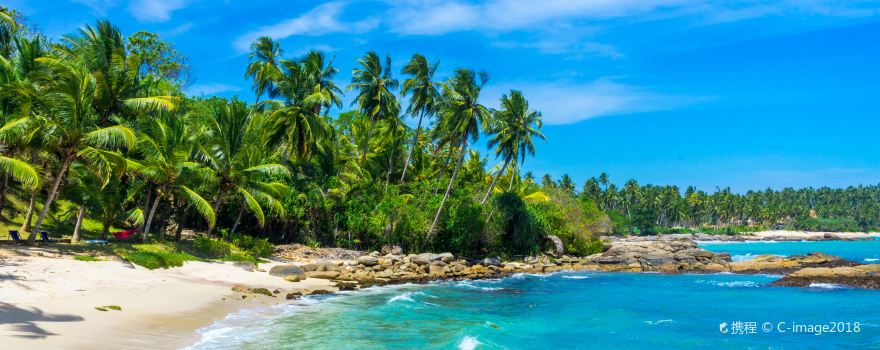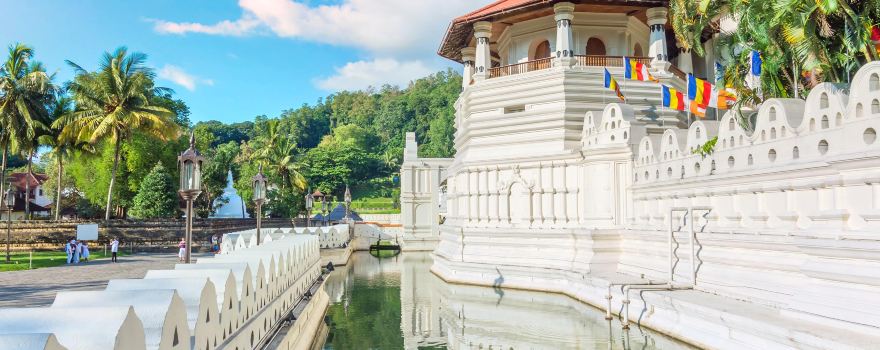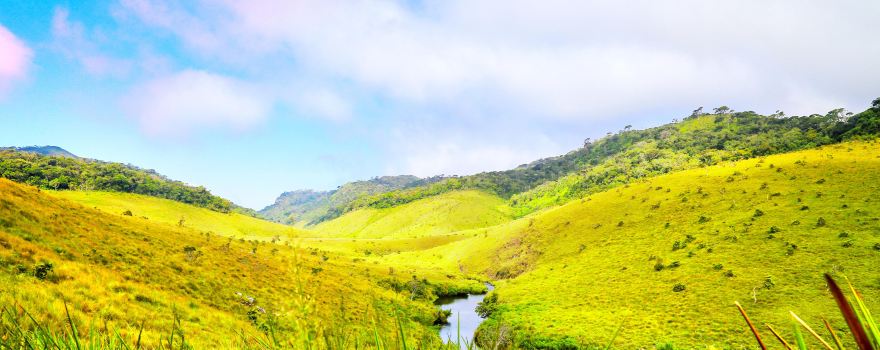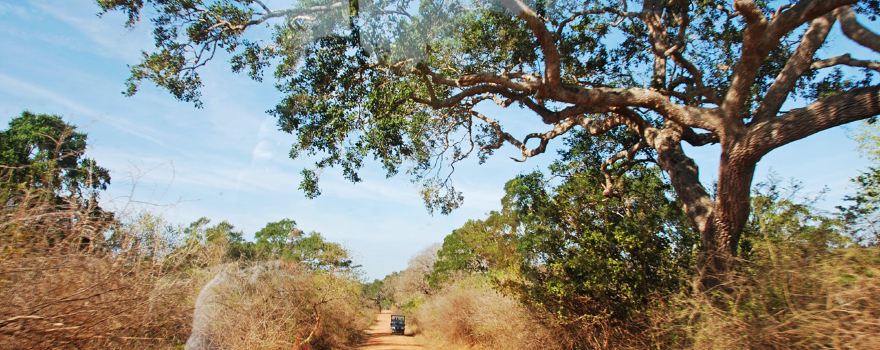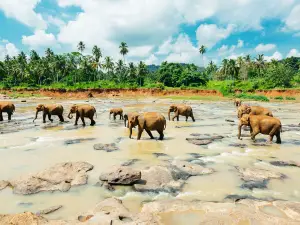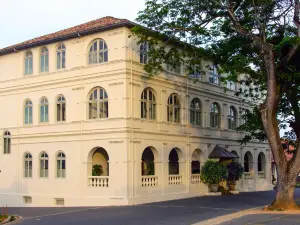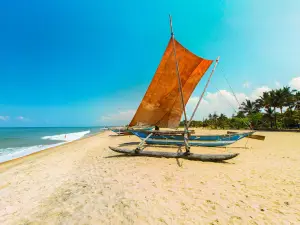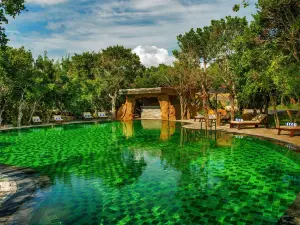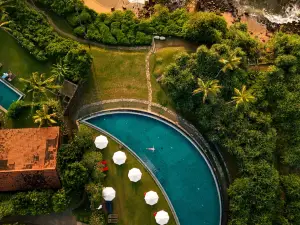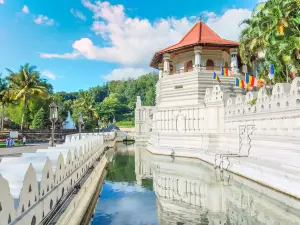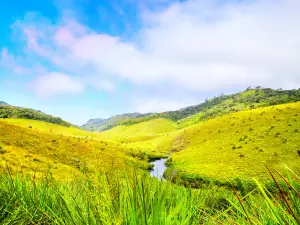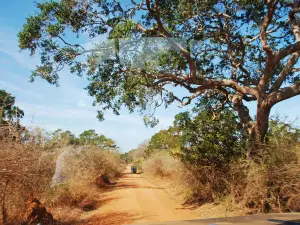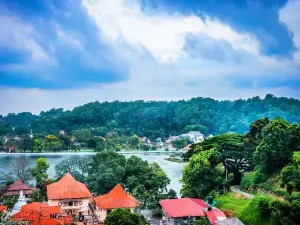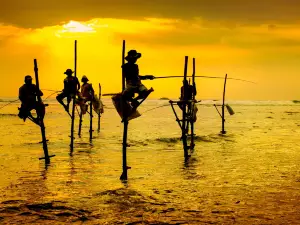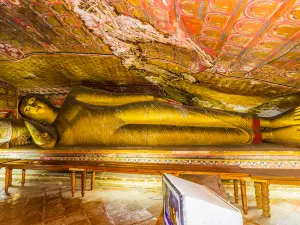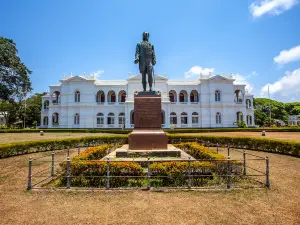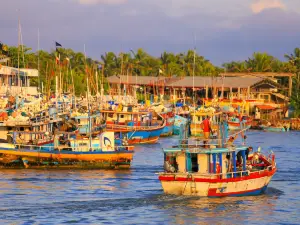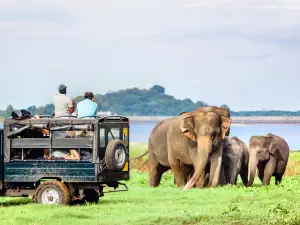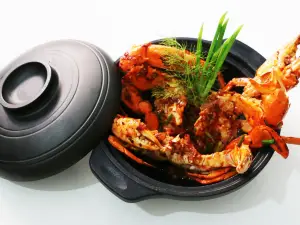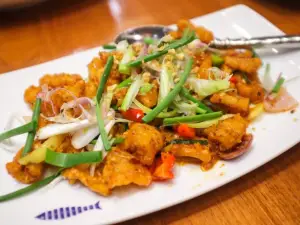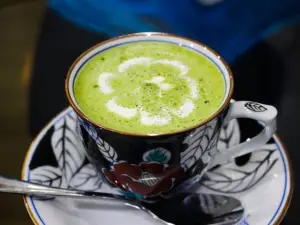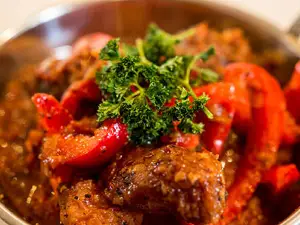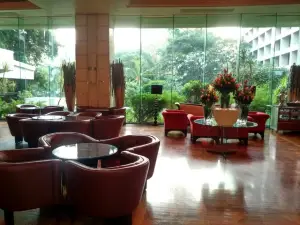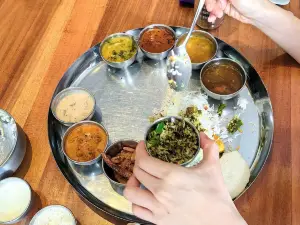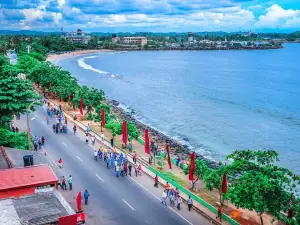Sri Lanka Independent Travel Guide (2025): Top Things to Do, Popular Attractions, Itinerary Planning, Accommodation, Food, Transportation, Weather, and More - Everything You Need to Know (Updated April, 2025) | Trip.com
About Sri Lanka
Recommended trip: 5–9 day(s)
Recommended trip: 5–9 day(s)Sri Lanka Local Experiences Map

Trending in Sri Lanka
Sri Lanka Local Travel Guide 2025
Sri Lanka Brief Guide
Sri Lanka, an island in the Indian Ocean, is rich in culture shaped by Indian influences and Theravada Buddhism. It offers a unique cuisine and is a cricket-loving nation. The landscapes vary from rainforests to beaches, with ancient ruins like the UNESCO-listed Sigiriya Rock Fortress and the cities of Anuradhapura and Polonnaruwa. Yala National Park, with the world's highest leopard density, offers thrilling wildlife safaris featuring elephants, crocodiles, and birds. Sri Lankan cuisine is diverse, with rice and curry as staples, and local delicacies like hoppers, a breakfast pancake, offering a flavorful journey for food enthusiasts.
Sri Lanka Best Time To Visit
The best time to visit Sri Lanka is from December to March. During these months, the weather is generally dry and sunny, especially in the south and west coasts, making it ideal for beach activities and wildlife spotting. This period aligns with the high season, meaning it can be crowded and prices may be higher, but the favorable weather conditions offer a great opportunity for tourists to explore the island's varied attractions.
Sri Lanka Must-try Local Experiences
1. Uncover the Ancient Wonders of the Cultural Triangle Embark on a journey through Sri Lanka's rich historical tapestry by visiting the ancient cities of Anuradhapura, Polonnaruwa, and Sigiriya, where the legendary Sigiriya Rock Fortress stands as a testament to architectural brilliance. 2. Bask in the South Coast's Pristine Beaches Immerse yourself in the unspoiled beauty of Unawatuna, Mirissa, and Tangalle, where sunbathing, surfing, and whale watching await amidst the pristine sands and azure waters. 3. Venture into the Hill Country's Enchanting Landscapes Board a scenic train journey through the verdant tea plantations of Nuwara Eliya and Ella, explore the secrets of tea factories, and trek to cascading waterfalls hidden in the heart of the hills. 4. Encounter Wildlife in Yala National Park Set off on an exhilarating safari adventure in Yala National Park, where elephants roam, leopards prowl, and many bird species fill the skies. 5. Dive into Colombo's Vibrant Cultural Heritage Step into the heart of Colombo's culture and history at the National Museum Galle, Gangaramaya Temple, and Pettah Market, where the city's spirit comes alive. 6. Savor the Flavors of Sri Lankan Cuisine Delight your palate with the aromatic dishes of Sri Lankan cuisine, from the comforting rice and curry to the delicate hoppers, kottu roti, and fresh seafood delicacies. 7. Immortalize the Nine Arches Bridge Capture the timeless beauty of the Nine Arches Bridge in Ella, an iconic railway bridge set against a backdrop of lush greenery, a picture-perfect moment. 8. Soar Above the Cultural Triangle Take to the skies in a hot air balloon for a panoramic view of ancient ruins, verdant landscapes, and wildlife from above, a truly unforgettable experience. 9. Rejuvenate in an Ayurvedic Spa Treat yourself to the ancient wisdom of an Ayurvedic spa treatment, a holistic experience designed to rejuvenate your body and mind, an essential part of your Sri Lankan journey.
Sri Lanka Travel Tips
1. Check for Leech Socks: When hiking in rainforests or wet areas, wear leech socks to protect yourself from leech bites. These can be purchased locally at outdoor stores or online and are highly recommended. 2. Watch Out for Rip Currents: Some beaches in Sri Lanka have strong rip currents. Always swim in designated areas and heed warnings from lifeguards. If caught in a rip current, stay calm, don't swim against it, and try to swim parallel to the shore. Signal for help if needed. 3. Food Safety: To avoid foodborne illnesses, eat at reputable restaurants and avoid street food that may not be prepared under hygienic conditions. Drink bottled water instead of tap water. Avoid salads and food that has been sitting uncovered. Be cautious with seafood, ensuring it is fresh. Use hand sanitizer if soap and water are not available. 4. Dengue Fever Precautions: Dengue fever is prevalent in Sri Lanka. Use mosquito repellent, wear long-sleeved clothing, and sleep under mosquito nets. Avoid being outdoors during peak mosquito activity times (mid-morning and late afternoon). Ensure windows and doors have mosquito-proof meshes. Consult a doctor for personalized advice, especially for children, pregnant women, and those with chronic illnesses. 5. Carry a Sarong: A sarong can be very useful in Sri Lanka. It can be used as a cover-up when visiting temples or as a beach towel, making it a versatile travel item. 6. Wildlife Interaction Laws: It's illegal to feed or touch wild animals in Sri Lanka's national parks. Maintain a safe distance and follow park regulations to protect both yourself and the wildlife.
Sri Lanka Transportation
To reach Sri Lanka, tourists can take direct flights to Bandaranaike International Airport in Colombo from various global locations including India, Europe, Asia, Australia, and the Middle East. They can also explore water routes by opting for ferry services from Talaimannar in Sri Lanka to Rameshwaram in India or luxury cruises across the Indian Ocean.
Sri Lanka Best cities to visit
Kandy, located in the heart of Sri Lanka, is renowned for its rich cultural heritage and stunning natural surroundings, including tea plantations and misty hills. It hosts the significant Temple of the Tooth Relic, a UNESCO World Heritage Site, housing a portion of Buddha's tooth, and is known as the cultural capital of the country. The city offers a blend of historical sites and vibrant festivities, notably the annual Esala Perahera festival, a spectacular event featuring processions with elephants and traditional dancers. Visitors can also enjoy scenic train journeys, such as the one from Kandy to Ella, acclaimed as one of the world's most picturesque train rides.
Sri Lanka Useful Guide
When traveling in Sri Lanka, it is essential to be aware of the potential natural hazards such as floods, landslides, and monsoons that may occur especially in the hilly regions during the monsoon season. It is advised to monitor weather updates and follow local authorities' advice during such events. Additionally, travelers should adhere to traffic rules to ensure a secure driving experience. The main guidelines include obeying the speed limits, not driving under the influence, and avoiding mobile phone usage while driving. Wearing seatbelts is mandatory, and maintaining a safe distance from the vehicle ahead is crucial. In emergencies, you can contact the police at 118/119, and for medical emergencies, the number is 110. Other important numbers include the Accident Service-General Hospital-Colombo at 011-269-1111 and the Tourist Police at 011-2421052. Always keep these contact numbers accessible during your stay.
Trip.Best: Sri Lanka
Popular Destinations
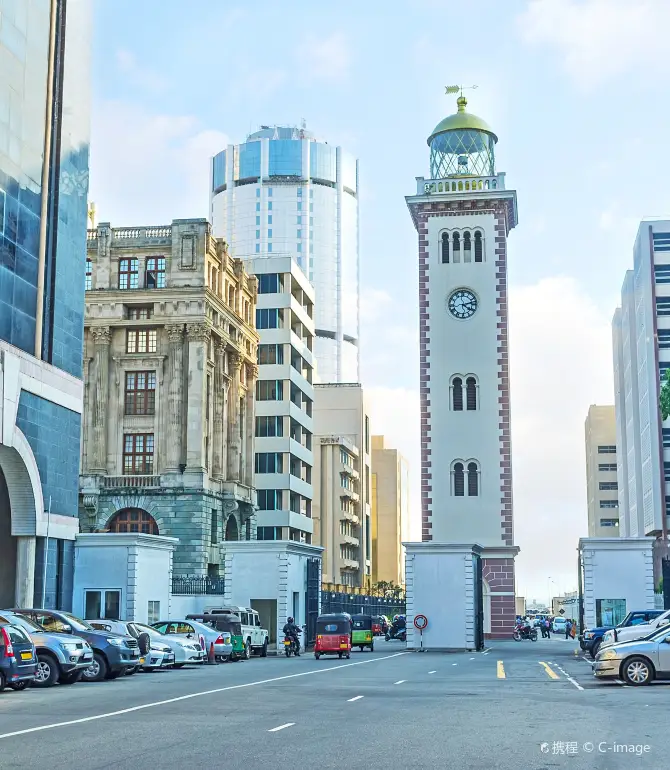
Colombo
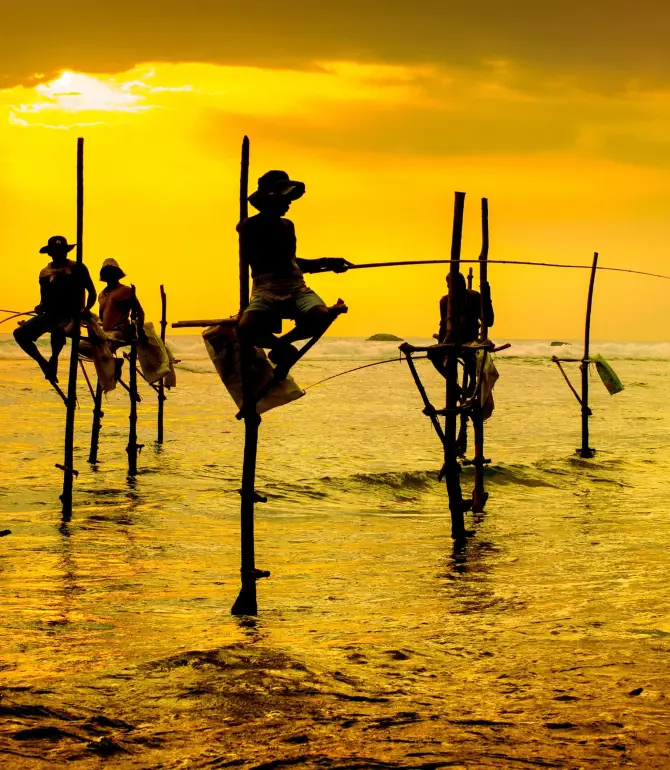
Galle
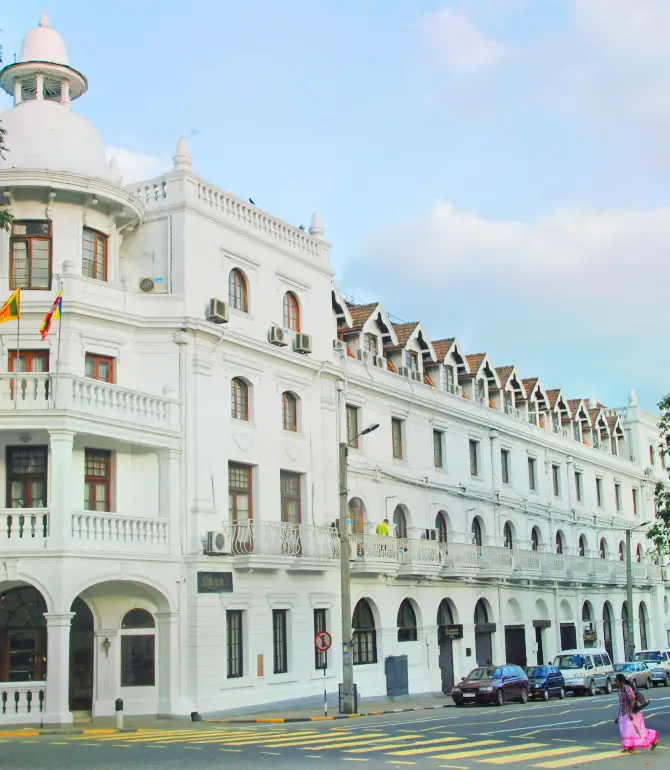
Kandy
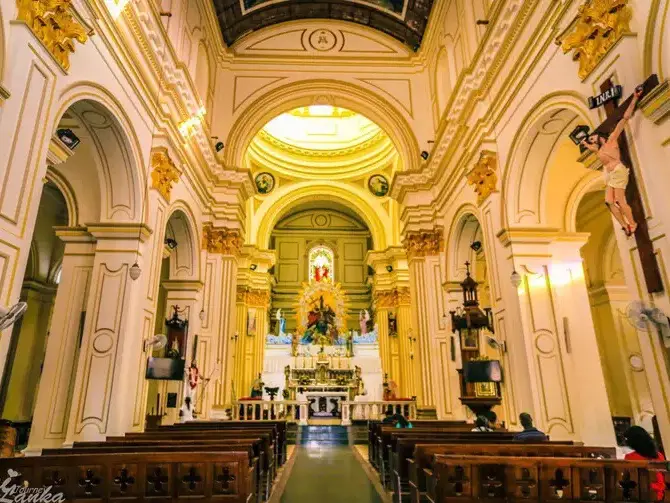
Negombo
Things to do in Sri Lanka
What to Do
What to Eat
Sri Lanka Moments: Through Travelers' Eyes

7-Day Sri Lanka Tour | Visa-Free Travel, Easy and Fun

Sri Lanka | Galle, a place you'll fall in love with

A must-visit in Sigiriya.

Nine Arches Bridge, Ella, Sri Lanka is totally worth visiting!!!

Visa-free travel in Sri Lanka: Top tips revealed.

Sri Lanka 8-Day Visa-Free Direct Flight Tour: Your Ultimate Guide

🇱🇰 A Must Do Hike in Ella, Little Adam's Peak

Exploring the Ancient Wonders.
Site Operator: Trip.com Travel Singapore Pte. Ltd.
